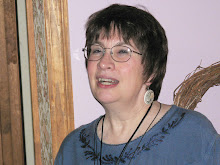Luke 11:27-12:12
The Revised Common Lectionary skips everything Luke wrote between the ask-seek-find scorpion-for-an-egg hypothetical and the parable of the rich farmer. Much of what is skipped in Luke is also skipped in Mark and Matthew. Of course, much of what is skipped is actually repeated nearly verbatim elsewhere in all three synoptic gospels. Luke repeats himself in 11:33. For a discussion of the original in 8:16, see To Have and Have Not.
To give the Elves their due, very little of what Luke describes in those intervening verses is particularly edifying. He has a woman exclaim how privileged his mother must have been to have nursed him as a baby. Apparently she was quite enamored of Jesus (think: I don’t know how to love him from Jesus Christ Superstar). Luke’s Jesus piously brushes her off: “Rather, privileged are those who hear the word of God and keep it.” Then Luke takes off on a tirade about how evil “this generation” is, and tries to make a point about Jonah and Ninevah, and how Jesus is a sign that at judgment time “the citizens of Ninevah will come back to life” and condemn them. After referring to “the queen of the south,” who apparently listened to Solomon’s wisdom, and will also reappear like the ghost of Christmas future, Luke seems to have written himself into a corner. At that point, he repeats Jesus’ one-liner about the lamp under the bushel basket.
But then, Luke regains his own light of inspiration, and launches into a full court press against Pharisees and lawyers. Ignoring this part of Luke’s gospel allows church leaders to pretend that Jesus never lost his temper, or used the kind of language for which your mother used to threaten to wash out your mouth with soap. Luke’s Jesus says “damn you!” no fewer than six times, three each for Pharisees and “legal experts.” Needless to say, “By the time [Jesus] left there, the scholars and Pharisees began to resent him bitterly . . .”
After the rant, Luke’s Jesus warns against the “leaven of the Pharisees, which is to say their hypocrisy.” He seems to be advising his followers to say the same things in public that they would say in private, and to say them without fear of retaliation or even death. “Don’t be so timid,” Luke’s Jesus admonishes: “You’re worth more than a flock of sparrows.” The whole sequence ends first with the warning that those who disown Jesus in public “will be disowned in the presence of God’s messengers.” Luke seems to be confused about the difference between the man Jesus (“son of Adam”) and the holy spirit. But he ends with the assurance that when faced with persecution, “the holy spirit will teach you at that very moment what you ought to say.”
Instead of ignoring Luke’s series of damnations frothing from the mouth of Jesus, 21st century followers of the Way might want to consider what Luke was trying to do. Present-day scholars are fairly certain that Luke’s audience was highly likely to have been among the better educated and privileged members of Roman society, probably in Syria, 30 to 50 years after the destruction of Jerusalem. Pharisees and legal experts (scholars) would have been fair game for a rant against corruption and hypocrisy amid the culture wars between those who were trying to preserve Judaism, and those who wanted to update it, and proclaim that Jesus was the long hoped-for Messiah. Today’s culture wars are analogous to the culture wars in Luke’s first century community. Who and what is a Christian, and what is meant when that name is claimed, are in debate. Fundamentalist and conservative Christians are clamoring for their own brand of Christianity to be enshrined in government policy, in direct contradiction to the first amendment establishment clause of the U.S. Constitution. Hatred of the sojourner, the foreigner, indeed anyone outside the white male normalcy of U.S. civilization, is justified on religious grounds.
In what may be a perfect contemporary illustration of who Jesus was condemning in 11:47-50, self-appointed Christian Pharisee Glenn Beck has organized a Tea Party rally on Washington’s Mall on the same date as Martin Luther King’s 1963 rally for civil rights. King’s words from that day reflect Luke’s concluding advice: “But there is something that I must say to my people, who stand on the warm threshold which leads into the palace of justice: In the process of gaining our rightful place, we must not be guilty of wrongful deeds. Let us not seek to satisfy our thirst for freedom by drinking from the cup of bitterness and hatred. We must forever conduct our struggle on the high plane of dignity and discipline. We must not allow our creative protest to degenerate into physical violence. Again and again, we must rise to the majestic heights of meeting physical force with soul force.”
If the public face of Christianity today is supposed to be love of neighbor and enemy, then where is all the greed and violence coming from? Luke’s Jesus has no time for those who “neglect justice and the love of God.” Jesus himself may well have condemned those who are more interested in prominent seats in the halls of power and being treated with respect in the marketplace. Luke’s Jesus says, be on your guard against hypocrisy so that you don’t fall into the same traps the religious and political leaders and lawyers do. Everything will become clear sooner or later, so be sure that whatever you say in the darkness and behind closed doors can be said and done openly. Take courage. Speak truth to power. Above all, don’t worry about how you will defend yourself or what you should say when they bring charges against you. If you are aligned with God’s realm of distributive justice-compassion, you will know what to do and say.
BLOG ARCHIVE
GAIA RISING
Subscribe to:
Post Comments (Atom)


No comments:
Post a Comment